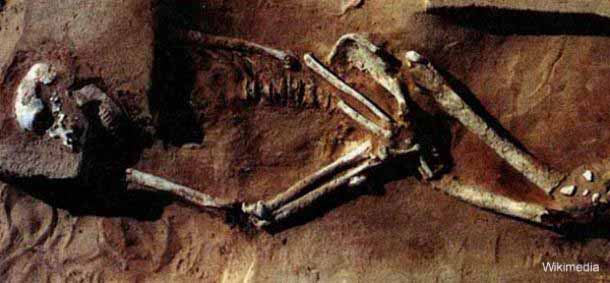Seven points I was struck by and want to invite comment on:
First, Desbois remarked that in the town he grew up in in Burgundy, two Germans were killed during the war - and everyone knew about it, even him after the war. How then, he asked, can it be that people in the east have insisted that what the Germans did, they did in secret and nobody knew, for example, in Rawa Ruska where 1000s of Jews and 1000s of Russian POWs were shot outside the town?
Second, following on this question, which relates to the war and to what people "remember" and talk about, Desbois noted that "you cannot commit genocide without involving the neighbors." Desbois then described typical execution processes used by the Germans and gave some examples to explain so few people were able to kill so many and what the mass murder operations "looked like."
Third, Desbois said that in one way it is easy for his team to find some of the mass graves (he's documented 1,900 execution sites in areas of the occupied USSR) because "the neighbors are looking for gold, still."
Four, Yahad in Unum has a fulltime staff of 27 in Paris - one member of which is focused entirely on handling correspondence from families/descendants of Jews who died during the war in the occupied USSR; letter writers often don't ask where a relative wound up but rather tell Yahad in Unum that the family have had no news, usually, since '41.
Fifth, Desbois said that the situation in Europe is critical, in his view; basically, talk to young people and you will find a goodly number of them who tell you that the Holocaust is a fraud invented by the Jews to trick people out of their money or to get support for Israel. Desbois was just appointed to an endowed chair in forensic study of the Holocaust at Georgetown U - his appointment beginning last week - and he noted that "America is heaven, our heaven has ended" in Europe. He related that Y-i-U's office in Paris moved in part due to complaints by neighbors that it "brings the Jews." In his view, anti-Semitism and denial are serious problems on the continent - and he gave combating denial as one of the foundation reasons for the importance of his work.
Sixth, Desbois remarked on the anonymity of the mass graves in the east, and, from his religious point of view, on the absence of memorials to those who perished. In this regard, he told how during some of his work in Poland an older man explained to him that Hitler made one mistake - Auschwitz - "because when we killed them in the forest, the Jews never came back" the way they now do for memorial and educational visits to the camps.
Last, Desbois' work has gained a second focus, which he spent about 1/4 of his lecture on, maybe a bit more: the genocidal work - he called it "a science" - of ISIS, which he sees as astonishingly fast at developing genocidal systems and implementing them. He said that a genocide is not a simple matter, that it's complex and that he has been surprised (having made six investigative trips to Syria and Iraq) at ISIS's expertise in mass murder and destruction of the Yazidis and also of Christians in the region. He tied this work in the present to the lessons learned in the Holocaust work he and his team have carried out and continue to do.
(I should add - thinking of Rodoh mockery of Desbois and his findings - that he showed only a couple of images of excavated mass graves, which he has Jewish religious authorities oversee, and the images showed a great many bones from obviously many victims. Desbois described finding the skeleton of one young girl, IIRC, near the edge of a former pit - with mouth locked wide open as if gasping for air or crying out . . . )





